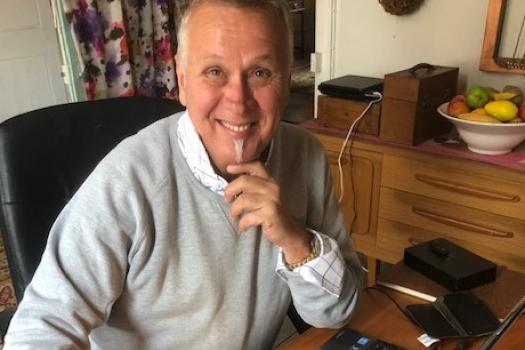Language is a virus

There is an old Laurie Anderson song called Language is a Virus.
I loved it, because it somehow captured the slipperiness of language, and how language can be weaponised – and become infectious.
I’m reminded of this song as we live through and respond to coronavirus, and as we commence imagining, or re-imagining, what life will be like after coronavirus, or even when we return to our workplaces.
I’ve been struck over the last months by the language that has entered our vocabulary, effortlessly, seamlessly it seems, and how it just latched on to our everyday conversation.
Social distancing always felt odd to me. Not the act of physical distancing in public spaces, or the act of self-isolating at home, but the fact that it was called social distancing. I felt a much stronger social solidarity than I did a social distancing – while being really clear about the epidemiological importance of physical distancing.
Other words became part of our everyday discourse. Pandemic. Shielding. Furlough. Isolation. All sound words with long histories, used afresh to describe other ways of prioritising in the context of pandemic. And common phrases like Key Workers took on new, important and loaded meanings as we collectively realised how pre-pandemic hierarchies did not reflect the needs of pandemic or post-pandemic societies. Flattening the curve became a collective endeavour and aspiration, and maintaining that flatness will be our collective endeavour for years to come.
And as we move through this wave of this pandemic we start to utter and conceptualise the ‘new normal’. What will be the new ways in which we interact in public, in workplaces, in the home, and how will we embody physical distancing and social solidarity alongside economic renewal?
While the answer to this question is profoundly unclear, it has already begun to be encapsulated in the phrase the ‘new normal’. Like a virus, this phrase could explode – despite the fact that it is meaningless, or even because it is meaningless. There was no ‘old normal’. Normalcy has always been a myth, defined mostly in relation to its inverses – abnormalcy, or even further back in time, subnormalcy.
I have spent my personal and professional life acting and espousing and celebrating difference. Difference is the antithesis of normal. I have spent the last 15 years leading a charity in the UK which is dedicated to celebrating difference. And as our charity emerges from these dark days we will not be entering a ‘new normal’. Instead we will be re-imagining our commitment to celebrating difference, learning from the different ways we have worked during the pandemic, and exploring and internalising what is different now – after this isolation, this anxiety, this grief and this solidarity.
As well as understanding the new differences, our charity will continue to act locally. While we are a family of services in a multitude of different geographies in the UK, in each county or borough or unitary authority in which we provide services, we anchor and connect ourselves locally. These connections include to local Public Health Units, who must have a hugely significant role in a different paradigm of pandemic response which puts local testing and contact tracing front and centre.
METRO Charity celebrates difference. Difference is where we thrive. We understand and value and utter difference, and we know that this pandemic has changed us individually and our charity forever – it has created opportunities to re-imagine our passionate commitment to equality, diversity and identity!